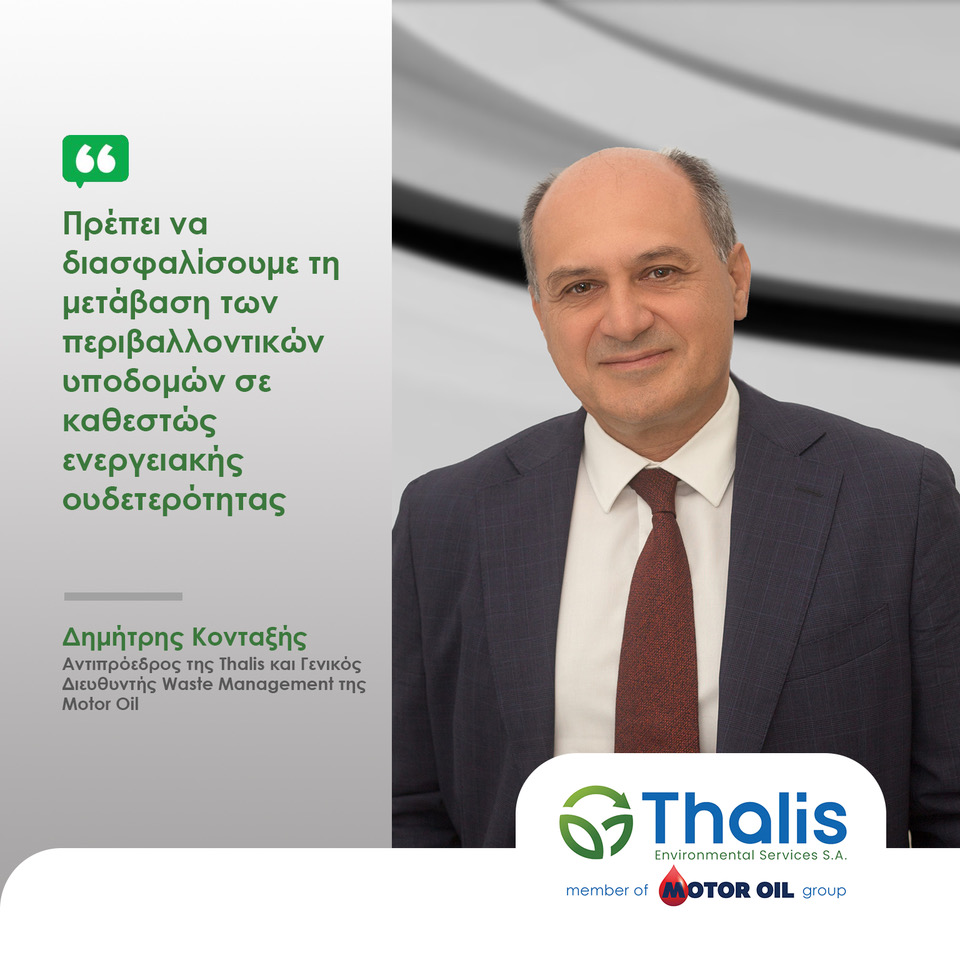
Dimitris Kontaxis, Vice President of Thalis and General Manager of Waste Management at Motor Oil, was a speaker at the 15th Panhellenic Conference of FO.D.S.A.
Published : November 7th, 2023
In his intervention, Mr. Dimitris Kontaxis highlighted, among other things, that 'we are in the final stages of implementing the national plan for solid waste and achieving the goals by 2030. Accelerating adaptation is a necessary condition for the transition to a fair and efficient Circular Economy. Citizens expect clean solutions from us, practical collection systems, and fair pricing of services.'
To open a new cycle of change, Mr. Kontaxis stressed that all stakeholders in our industry must focus on four priorities:
- Accelerating the implementation of ECA and their conversion into ECA+: The maturity processes of the projects need to be upgraded, and especially international developments require the rapid revision of the studies, especially for MSW landfills.
- Increased participation in the transition process of private investments: Let's create the right investment environment for the production of secondary materials and energy recovery. Energy Recovery Units must be completed simultaneously with MSW landfills to be able to absorb the produced SRF.
- Efficient source separation, collection, and processing of organic waste: Let's adopt a holistic approach, upgrade MBT facilities, public-private partnerships in the entire life cycle management of organic waste, and invest in the production of high added value secondary products.
- Transition of environmental infrastructure to an energy-neutral regime: It is imperative to achieve a significant reduction in energy consumption from the grid and to fully exploit the available renewable energy sources.
In conclusion, Mr. Dimitris Kontaxis stated, 'It is obvious that only the direct promotion of these priorities will lead to the achievement of the national plan's goals. We have now surpassed the 'space-time' of plans and have long entered the implementation field. Today, more than any other time period, the coordination of procedures is emerging as a need and a critical success parameter. If the processes of completing the basic infrastructure grid are accelerated, a new dynamic will be created for private investments in the circular economy, resulting in the strengthening of economic activity and the creation of green jobs.'"